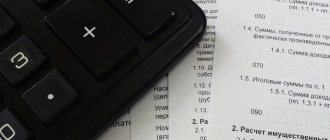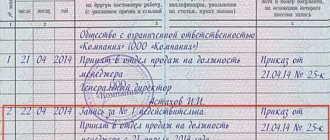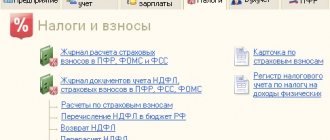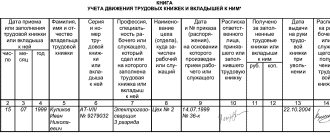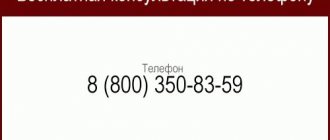Not always field or desk audits of auditors of extra-budgetary funds, and in particular the Pension Fund of Russia, end with a result that satisfies both parties. What should you do if you are confident in the accuracy of the information provided to the Pension Fund of Russia, but based on the results of the audit, you received a report that reflects violations?
Minor contradictions can be eliminated by agreement with the inspector immediately during the inspection. But if the policyholder does not agree with the Fund’s conclusions, the disagreement will have to be resolved by sending a reasoned explanation or objection to the PFR inspection report in the manner prescribed by law.
What can the employer's Pension Fund fine you for?
Each employer is required to provide reports to the Pension Fund with information about its employees:
- SZV-M - monthly until the 15th day of the next month;
- SZV-STAZH - annually until March 1 of the following year.
For failure to provide information about at least one employee, the organization may be fined 500 rubles. If the number of employees is large, the fine can reach significant amounts. If you disagree with the requirements of the Pension Fund, it is important to competently draw up objections to the act of the Pension Fund.
What are they fined for?
There are two formal grounds for a fine:
- the report was not submitted on time;
- reported on time, but did not provide data on all employees and people with whom civil contracts were concluded.
In both cases, the fine is 500 rubles for each person indicated in the report.
How to calculate the amount of the fine? In private explanations, Pension Fund specialists propose such an algorithm.
If the report is late by at least one calendar day, the fine is calculated based on the number of people indicated in the report. That is, if the SZV-M for 10 employees was not submitted on time, the fine will be 5,000 rubles (500 rubles × 10 people).
If information about all insured persons is not provided, only “forgotten” employees are fined. For example, in the report for October they provided data on 10 employees, but did not report on two who were fired in the middle of the month. Then the fine will be 1000 rubles (500 rubles × 2 people).
These are general rules. In reality, everything can be much more interesting, as evidenced by judicial practice. More on this below. But first you need to understand the procedural issues and figure out how to file complaints.
When can you avoid a fine?
According to Pension Fund experts, the fine can be avoided. If:
- Errors were discovered by Pension Fund specialists, but the organization eliminated them within five days after receiving notification of them.
- The organization itself found the error and sent corrections before the deadline for submitting the form. For example, the primary SZV-M was commissioned on April 5. On April 10, the organization discovered that it had not submitted the form for a new employee and immediately provided a supplementary SZV-M.
- After the 15th, the error is corrected for those employees for whom information has already been submitted.
In 2021, the Supreme Court twice expressed the opinion that it is unlawful to apply penalties to an insured who independently discovered that he did not submit a SZV-M for an employee and submitted an adjustment report with correction (clause 38 of the Review of the Presidium of the Armed Forces of the Russian Federation dated December 26, 2018 and the Determination RF Armed Forces dated September 5, 2018 No. 303-KG18-5702).
But local inspectors still fine organizations that correct errors on their own. If you are faced with such a situation, an objection to the act in the Pension Fund of the Russian Federation SZV-M with reference to the position of the Supreme Court will help to cancel or significantly reduce the fine.
Fines for supplementary SZV-M. Analysis of the real response of the Pension Fund to the policyholder’s complaint
And this is all about him - about the fine for the additional SZV-M. After contacting a higher authority, a response was received from the regional branch of the Pension Fund of the Russian Federation “On consideration of the complaint.” Let's figure out how convincing the PFR's theses are, and give additional arguments to justify the illegality of collecting a fine under Article 17 of Law No. 27-FZ.
Excerpt from the Pension Fund's response
Thesis No. 1 about the plot of the case is stated in the fifth paragraph of the response letter. It follows from it that the policyholder not only did not violate legal norms, but also directly followed them, since the type of form “additional” (supplementary form) was approved precisely to “ supplement the information about the insured persons previously accepted by the Pension Fund for the given reporting period .” Reason: Resolution of the Board of the Pension Fund of February 1, 2016 No. 83p.
Thesis No. 2 is set out in the sixth and seventh paragraphs and talks about the Pension Fund’s interpretation of paragraph 39 of the Instruction on the procedure for maintaining individual (personalized) records of information about insured persons, approved by order of the Ministry of Labor and Social Protection of the Russian Federation dated December 21, 2016 No. 766 n.
Objections to this thesis are as follows. Firstly, from paragraph 39 of the Instructions it does not at all follow that it refers to insured persons, information on whom was previously provided in the original form . This is pure speculation by the Pension Fund of Russia, because the criterion of an “insured person” is not the fact of providing information about him to the Pension Fund of the Russian Federation, but the fact of his insurance in the compulsory insurance system.
Hence, the insured person is generally any person, including those for whom individual information was not provided. Reason: paragraph 1 of Article 7 of the Federal Law “On compulsory pension insurance in the Russian Federation” dated December 15, 2001 N 167-FZ: “Insured persons are persons who are covered by compulsory pension insurance in accordance with this federal law.”
Secondly, it is practically impossible in principle for a situation where the Pension Fund of the Russian Federation accepts initial individual information with an error (to correct which, supposedly, the policyholder subsequently needs to submit a supplementary form).
Indeed, in order to avoid mistakes, at the initiative of the Pension Fund, a number of software have been developed and are actively used, a list of which is freely available on the official website of the Pension Fund. Each of these qualified programs is easily able to compare only three positions: full name, SNILS and TIN of the insured person. A positive incoming inspection protocol or a mark on acceptance of the report guarantees the passage of this “checking filter” and certainly indicates the absence of errors by the policyholder.
Therefore, paragraph 39 of the Instruction actually states that financial sanctions are not applied if an error is independently discovered in individual information in relation to the insured person (in general, and not specifically indicated in the original SZV-M), and corrections are provided (that is, a supplementary SZV-M ).
Thesis No. 3 is impossible not to quote: “. presented for the first time in relation to the insured person cannot be considered updated (corrected )” (highlighted by the Pension Fund of Russia). Opposing the Pension Fund of Russia, it should be noted that individual information is not only the content (information in section 4 SZV-M), but also the form of the SZV-M report, which is called “INFORMATION ABOUT INSURED PERSONS,” and the abbreviation SZV-M stands for “ Information about the insured is incoming - monthly." Therefore, the information provided for the first time in relation to the insured person in the supplementary form SZV-M is certainly considered clarified (corrected), since it clarifies (corrects) the original form SZV-M “INFORMATION ABOUT INSURED PERSONS”, as provided for by the Resolution of the Board of the Pension Fund of the Russian Federation dated 01.02.2016 No. 83p. Otherwise, there is no point in providing a complementary form at all. No one will argue that it was invented solely to fine policyholders.
One cannot ignore thesis No. 4 . It states that the policyholder is charged with violating the Instruction approved by order of the Ministry of Labor and Social Protection of the Russian Federation dated December 21, 2016 No. 766 n, which entered into legal force on February 19, 2021 and therefore was not available as such on the date the policyholder provided the supplementary SZV-M forms (in the example under consideration this is December 2021).
The Pension Fund's defense of the opposite point of view is not only absurd, but also a violation of Part 3 of Article 15 of the Constitution of the Russian Federation: “Any regulatory legal acts affecting the rights, freedoms and duties of a person and a citizen cannot be applied if they are not officially published for public information.” .
Thesis No. 5 requires a brief explanation. In the example under consideration, the territorial body of the Pension Fund of the Russian Federation, when imposing sanctions for the supplementary SZV-M 2021, used forms of Acts on the Identification of Offenses that had not entered into legal force, approved by Resolution of the Board of the Pension Fund of the Russian Federation dated November 23, 2016 No. 1058p. The position of the regional branch of the Pension Fund of Russia set out in the response letter is that this “does not contradict the norm of Article 17 of Law No. 27-FZ.”
But in fact, neither Article 17 of Law No. 27-FZ, nor any other regulatory legal act contains or can there be permission to use unregistered and officially published regulatory legal acts, and they really cannot be applied. Reason: paragraph 10 of the Decree of the President of the Russian Federation of May 23, 1996 N 763 (as amended on May 29, 2017): “Regulatory legal acts of federal executive authorities. those that have not passed state registration, as well as registered but not published in the prescribed manner, do not entail legal consequences as those that have not entered into force, and cannot serve as a basis for regulating relevant legal relations, applying sanctions to citizens, officials and organizations for failure to comply with the provisions contained in them instructions. These acts cannot be referred to when resolving disputes.”
How to file an objection to the Pension Fund regarding fines
The company has 15 days after receiving the inspection report to file an objection to the fine under SZV-M. After the end of this period, the Pension Fund has 10 days to make a decision on the inspection. When making a decision, the regulatory body must consider the organization's point of view. The policyholder has the right to be present at the hearing.
As practice shows, when making a decision, the Pension Fund of the Russian Federation rarely waives a fine or reduces its amount. But if the organization can clearly defend its point of view and the Fund’s management sees the hopelessness of the trial, the fine may be canceled.
If this does not happen, the organization can always challenge the unlawful decision in court.
How to file objections to the PFR act under SZV-M and SZV-STAZH
A desk or on-site inspection by a representative of the Fund can be carried out, incl. to verify the information presented in the SZV-M report, as well as in the relatively new (submitted with reporting for 2021) SZV-STAZH report.
You can often hear the opinion that filing objections (or giving explanations during the inspection) is useless. However, this is not the case, and the opportunity to prove and defend one’s case is provided to the fee payer by law as a right.
It is advisable to submit objections to the Pension Fund of Russia act if only because it gives the policyholder the opportunity to:
- weighed and thoughtfully formulate and present with argumentation your position on the questions of why exactly such and not other data are included in the calculations;
- avoid undisputed debiting of funds from the account to pay off the imposed fine;
- point out procedural violations committed by Foundation employees during the inspection.
The certificate is handed over to the policyholder within 5 days from the date of signing. It can be transmitted in three ways:
- against signature to a representative of the policyholder upon a personal visit to the Pension Fund client service;
- through a postal operator (sent by registered mail);
- in electronic form (if the policyholder is registered as a user of the electronic document management system).
Upon receipt of the inspection report, objections can be submitted by the policyholder no later than 15 days from the date indicated in the receipt or delivery stamp (the date is determined by the postal stamp on delivery or information about sending via the telecommunications system (Article of the Law of 01.04.1996 No. 27-FZ).
If you agree with the objections presented, the head of the territorial division of the Pension Fund of the Russian Federation makes a decision to refuse to hold the policyholder liable. If the policyholder’s arguments turn out to be unconvincing, the decision on the act will remain unchanged, and you will have to prove your case in court.
Objection to the Pension Fund inspection report: sample
Objections are submitted to the SZV-M Pension Fund in any form. There is no regulated form. But in order for the Pension Fund to consider the company’s written opinion, some rules must be followed:
- The preparation of the document must begin by indicating the details of the policyholder and the Pension Fund of the Russian Federation branch that conducted the inspection. Be sure to indicate the registration number of the organization and TIN. It is by these details that the company is identified by the regulatory authority.
- In the text, make reference to the number and date of the inspection report to which the response is being drawn up. You should also indicate your full name. the specialist who carried out the inspection.
- State why penalties were assessed.
- Express your opinion about your disagreement with the accrual of fines and indicate the reasons why you think they are wrong. Be sure to make references to legal acts, court decisions and opinions of the Armed Forces of the Russian Federation.
- The document must be signed by the head of the organization and submitted to the territorial body of the Pension Fund.
Sample objection to the PFR inspection report
How to prepare objections
If you decide to challenge a fine, you must first understand the reasons for the sanctions. The auditors must describe all this in the act. Naturally, if the act contains no facts at all that became the reason for the fine, this is exactly what you should indicate in your objections. After all, if you ignore the act altogether, the mechanism will continue to operate without the participation of the company. That is, within the established time frame, the auditors will make a decision and issue a demand for payment of a fine.
The most common reason for a fine is failure to submit information on time. By the way, usually the problem with fines concerns companies that report electronically. This is not surprising. After all, then the price of the issue is 12,500 rubles minimum! Yes and. It’s not like a company with a founder-general that doesn’t actually conduct any activities. It is not surprising that the Pension Fund of the Russian Federation does not expect anything from such “offices” in principle and does not even want to waste its time on them (letter dated July 13, 2016 No. LCH-08-26/9856). But there is always an interest in collecting money from an active and operating company.
So, carefully study the act and evaluate the invoice in favor of the fine. For example, the fund fines people for being late with electronic reporting. At the same time, the company accurately sent the report on time, and SZV-M left only on the second or third attempt. Here you need to look at the special operator’s protocols and the receipt of their Pension Fund. If the xml files themselves are the same and the special operator went through everything without problems two or three times, then there is clearly a problem with the fund’s receiving complex.
This should be indicated in the objections. At the same time, attach the xml file itself, a receipt for delivery of the report to the Pension Fund of Russia and a positive protocol on acceptance of the report to the text of the objections.
Objections to the FSS regarding the inspection report
In addition to the Pension Fund, employers report to one more extra-budgetary fund. Namely, to the Social Insurance Fund (SIF). The Social Insurance Fund controls the calculation and payment of contributions for industrial accidents. It also checks the correctness of payments of social insurance benefits for disability, in connection with maternity and others.
The FSS also conducts desk and on-site inspections of policyholders. And if it finds violations, it makes a decision not to accept the amounts of paid benefits for offset or to collect fines. The policyholder has the opportunity to challenge additional charges by filing an objection to the FSS inspection report. We will give a sample for the same example. The procedure for its formation is similar.
Is it possible to submit written objections to the Pension Fund of Russia act?
Home → Articles → Is it possible to submit written objections to the Pension Fund of Russia act?
On November 1, 2016, the organization submitted the SZV-M form for October 2021 through telecommunications channels (hereinafter referred to as TCS). Due to a technical glitch, one employee was not included in the report. On 12/07/2016, a SZV-M report was submitted for this employee with the form type “supplementary”. 12/14/2017 The Pension Fund of the Russian Federation drew up an act on identifying a violation in the field of legislation of the Russian Federation on individual (personalized) accounting in the compulsory pension insurance system and wants to hold the organization accountable for the incompleteness and unreliability of the information provided (under Part 3 of Article 17 of the Federal Law of 01.04 .1996 No. 27-FZ). The act is dated December 14, 2017, sent by mail on December 21, 2017 (as confirmed by the stamp on the postal envelope). An act on the identification of an offense in the field of legislation of the Russian Federation on individual (personalized) accounting in the compulsory pension insurance system was received by the organization on January 17, 2021. The additional information was accepted without any errors or warnings, as documented. Are the deadlines for drawing up the act violated? Have the deadlines for delivery of the act been violated (must be delivered personally or sent by registered mail or via TKS channels within 5 days from the date of signing)? Is there a violation in the fact that the report was sent by registered mail, and not through TKS channels, given that the reports are submitted electronically, and if the organization submits a “paper” report, it will be fined? Is it possible to file objections to the act that will lead to the cancellation of the fine?
In accordance with clause 2.2 of Art. 11 of the Federal Law of 04/01/1996 No. 27-FZ “On individual (personalized) accounting in the compulsory pension insurance system” (hereinafter referred to as Law No. 27-FZ), the policyholder monthly no later than the 15th day of the month following the reporting period - the month provides the following information about each insured person working for him (including, in particular, persons who have entered into contracts of a civil law nature, the subject of which is the performance of work, the provision of services): 1) insurance number of an individual personal account; 2) last name, first name and patronymic; 3) taxpayer identification number (if the policyholder has data on the taxpayer identification number of the insured person). Information provided for in clause 2.2 of Art. 11 of Law No. 27-FZ, are provided in the SZV-M form “Information on insured persons” (hereinafter referred to as the SZV-M form), approved by Resolution of the Pension Fund Board dated 01.02.2016 No. 83p and put into effect on April 1, 2021.
Until 01/01/2017, the deadline for submitting information on the monthly form SZV-M was set “no later than the 10th day of the month following the reporting period - month.” If information about the employee was mistakenly not included in the initial report, then the policyholder must provide information regarding this person in the SZV-M form with the code “additional” - supplementary form.
Part 3 of Art. 17 of Law No. 27-FZ it is determined that for the failure of the policyholder to provide within the prescribed period or the provision of incomplete and (or) unreliable information provided for, inter alia, clause 2.2 of Art. 11 of Law No. 27-FZ (in the SZV-M form), financial sanctions in the amount of 500 rubles are applied to such an insured for each insured person.
At the same time, Art. 15 of Law 27-FZ gives the policyholder the right to supplement and clarify the information transmitted to him about the insured persons in agreement with the relevant Pension Fund of Russia body.
In the situation under consideration, the error was identified by the policyholder and independently corrected (the supplementary form SZV-M was submitted) until it was discovered by the territorial body of the Pension Fund of the Russian Federation. However, the provisions of Art. 17 of Law No. 27-FZ does not regulate such cases. Formally, in this case, the policyholder committed an offense, liability for which is provided for in Part 3 of Art. 17 of Law No. 27-FZ.
Let us note that this norm (unlike, for example, clause 2 of Article 126.1 of the Tax Code of the Russian Federation, which is applied to some extent in similar respects) does not provide for the release of the insured from the liability provided for in the event that he independently identifies errors and presents them in PFR body updated information until the moment when the policyholder learned that the PFR body discovered the unreliability of the information provided by it.
The letter of the Pension Fund of the Russian Federation dated December 14, 2004 No. KA-09-25/13379 “On the application of financial sanctions in accordance with Article 17 of the Federal Law of April 1, 1996 No. 27-FZ” indicates the possibility of non-application of financial sanctions provided for in Part. 3 tbsp. 17 of Law No. 27-FZ, if the policyholder independently identified the error and provided reliable information on personalized accounting.
Such a law enforcement approach will stimulate the interest of policyholders in independently and timely elimination of mistakes made, more prompt processing of individual (personalized) accounting information by Pension Fund bodies, reduce tension in the relationship between policyholders and Pension Fund bodies, and also serve as additional argumentation in protecting the interests of the Pension Fund.
The above approach of the Pension Fund of Russia is also supported by the courts (see, for example, the ruling of the Supreme Arbitration Court of the Russian Federation dated February 25, 2013 No. VAS-1338/13). Personalized accounting information initially submitted in a timely manner by the policyholder, containing shortcomings and errors, subsequently corrected by the company, cannot be regarded as unreliable information, since they are corrected in accordance with the current legislation (decision of the Supreme Court of the Russian Federation dated 02/03/2015 No. 310-KG14-7805).
The procedure for the Pension Fund of Russia to maintain individual (personalized) records of information about insured persons, children, as well as information about other categories of individuals for opening an individual personal account for the purpose of providing state and municipal services is established by the Instruction on the procedure for maintaining individual (personified) records of information about insured persons , approved by order of the Ministry of Labor of Russia dated December 21, 2016 No. 766n (which entered into force on February 19, 2017, hereinafter referred to as the Instruction).
From paragraph 3 of clause 39 of the Instruction it follows that financial sanctions are not applied to the policyholder if the policyholder, upon identifying an error in the previously submitted individual information regarding the insured person, before the error is discovered by the territorial body of the Pension Fund of the Russian Federation, independently submits updated (corrected) information to the territorial body of the Pension Fund of the Russian Federation. information about this insured person for the reporting period.
Sanctions also do not apply if the policyholder provides updated (corrected) individual information within five working days from the date of receipt of the notification about the elimination of existing discrepancies sent to the policyholder by the territorial body of the Pension Fund of the Russian Federation in accordance with Part 5 of Art. 17 of Law No. 27-FZ (paragraph 2 of clause 39 of the Instructions).
The decision of the Eleventh Arbitration Court of Appeal dated September 5, 2017 No. 11AP-11057/17 considered a situation similar to the one we are considering. It must be said that the court of first instance came to the conclusion that the Pension Fund of the Russian Federation reasonably held the insured accountable for committing an offense under Part 3 of Art. 17 of Law No. 27-FZ.
However, the appellate court overturned this decision, citing, among other things, paragraph 39 of the Instructions and the above-mentioned letter from the Pension Fund of Russia dated December 14, 2004 No. KA-09-25/13379. The court indicated that in a situation where the policyholder independently discovered an error and corrected it by adding the missing information in personalized accounting in accordance with the procedure established by Art. 15 of Law No. 27-FZ, grounds for prosecution under Part 3 of Art. 17 of Law No. 27-FZ does not arise.
The court also noted that, as a general rule, a formal approach to imposing a fine is unacceptable; any sanction must be applied taking into account a number of principles: guilt and wrongfulness of the act, proportionality of punishment, presumption of innocence.
Similar conclusions are presented in the decisions of the Autonomous District of the Volga District dated December 11, 2017 No. F06-27663/17 in case No. A65-15614/2017, Far Eastern District dated April 10, 2017 No. F03-924/17 in case No. A16-1601/2016, Twenty-first Arbitration Court of Appeal dated 09/28/2017 No. 21AP-1907/17, dated 05/05/2017 No. 21AP-839/17, Sixth Arbitration Court of Appeal dated 08/15/2017 No. 06AP-4020/17, Sixteenth Arbitration Court of Appeal dated 05/12/2017 No. 16AP -1355/17.
The procedure for checking the correctness of filling out the completeness and timeliness of submitting individual (personalized) accounting information is established by Art. 17 of Law No. 27-FZ.
According to Part 5 of Art. 17 of Law No. 27-FZ, if errors and (or) inconsistencies are detected in the information provided by the policyholder between the information presented and the information available to the Pension Fund of the Russian Federation, a notice to eliminate the existing discrepancies within five working days is given to the policyholder personally against signature, sent by registered mail or transmitted electronically via telecommunication channels.
By virtue of Part 6 of Art. 17 of Law No. 27-FZ when an offense is detected, liability for which is established by Art. 17 of Law No. 27-FZ, the official of the territorial body of the Pension Fund of the Russian Federation who established the offense draws up an act, which is signed by this official and the person who committed such an offense. A corresponding entry is made in the act regarding the refusal of the person who committed the offense to sign the act.
The act, within five days from the date of its signing, must be delivered to the person who committed the offense in person against signature, sent by registered mail or transmitted electronically via telecommunication channels. If the act is sent by registered mail, the date of delivery of this act is considered to be the sixth day counting from the date of sending the registered letter (Part 7, Article 17 of Law No. 27-FZ).
At the same time, the provisions of Art. 17 of Law No. 27-FZ does not establish a deadline for drawing up an act on the identification of an offense, and also does not establish the dependence of the method of transferring the act to the policyholder on the method of submission by the policyholder of information in the SZV-M form.
Thus, we believe that the act of identifying an offense can be transferred to the insured in any of the three ways listed in Part 7 of Art. 17 of Law No. 27-FZ.
According to Part 8 of Art. 17 of Law No. 27-FZ, a person who has committed an offense, in case of disagreement with the facts set out in the act, as well as with the conclusions and proposals of the official who discovered the fact of the offense, within 15 days from the date of receipt of the act, has the right to submit written objections to the act as a whole or to its individual provisions, as well as attach to written objections documents (copies thereof, certified in the prescribed manner) confirming the validity of their objections.
In the case under consideration, the last day for sending the act by mail is December 21, 2021, the date of delivery of the act is considered to be December 29, 2021.
Thus, the last day for the policyholder to submit written objections to the act is January 29, 2021.
According to Part 9 of Art. 17 of Law No. 27-FZ, the act, as well as documents and materials submitted by the person who committed the offense, must be considered by the head (deputy head) of the territorial body of the Pension Fund of the Russian Federation and a decision on them must be made within 10 days from the date of expiration of the period during which the policyholder could submit written objections to the report. This period may be extended, but not more than one month.
The territorial body of the Pension Fund of Russia notifies the person who committed the offense of the time and place of consideration of the act. The failure of a duly notified person held accountable for committing an offense or his representative does not deprive the head (deputy head) of the territorial body of the Pension Fund of the Russian Federation from considering the act in the absence of this person.
Based on the results of consideration of the act, as well as the documents and materials attached to it, the head (deputy head) of the territorial body of the Pension Fund of the Russian Federation makes a decision: – on bringing to justice for committing an offense; – on refusal to prosecute for committing an offense (Parts 10, 11, Article 17 of Law No. 27-FZ).
At the same time, a person in respect of whom a decision has been made to prosecute for committing an offense has the right, within three months from the day when the person learned or should have learned about the violation of his rights, to appeal this decision to a higher body of the Pension Fund of the Russian Federation (Part 14 of Art. 17 of Law No. 27-FZ).
If a higher authority of the Pension Fund makes a decision to refuse to satisfy the complaint, the policyholder has the right to appeal this decision to the arbitration court.
When brought to responsibility established by Art. 17 of Law No. 27-FZ, circumstances mitigating the liability of the insured may be taken into account and the amount of the fine collected may be reduced (see the decision of the Arbitration Court of the Sverdlovsk Region dated 09/05/2016 in case No. A60-31924/2016, the decision of the Administrative Court of the Lipetsk Region dated 02/16/2017 in the case No. A36-12788/2016).
Answer prepared by: Olga Ivankova, expert of the GARANT Legal Consulting Service, auditor, member of the Association “Commonwealth” Response quality control: Elena Koroleva, reviewer of the GARANT Legal Consulting Service
Latest news of the digital economy on our Telegram channel
| Do you want to switch to EDI? We will help you organize legally significant document flow using an electronic signature. Leave a request >> |
Lawyer appealing the decision of the pension fund in Yekaterinburg
We protect the pension rights of citizens who are denied a pension.
We are also contacted by legal entities who have been fined by the Pension Fund of the Russian Federation, citizens who have the right to early retirement, but have not received a positive decision from the state. The pension fund belongs to the state apparatus, and it is subject to the law “On Citizens' Appeals”. According to this law, officials are obliged to take the required measures if citizens contact them with any complaints or comments.
Our pension lawyer will help you: professionally, on favorable terms and on time. Call today!!!
Reducing the fine for late submission of a report
If you have a problem with late filing of SZV-M, expect a notification about the need to pay the amount of penalties imposed for late reporting in the amount of 0.5 per employee. Some business participants who have committed this violation try to write letters to the Pension Fund of the Russian Federation in which they describe various mitigating circumstances:
- a problem with reporting for the first time;
- had no intent;
- there was no damage to the budget as a result of this delay, etc.
All this could have worked to one degree or another before Federal Law No. 212 came into force. Previously, appeals against pension fund fines were carried out on the basis of the provisions of the Tax Code of the Russian Federation prescribed in Articles 112 and 114.
At that time, the question of how to challenge the fine of the pension fund did not arise, since the articles of the Tax Code of the Russian Federation clearly stated the grounds for reducing the problem by the arbitration court or completely canceling the fine for late reporting by the Pension Fund of Russia. Even the presence of one of the listed mitigating circumstances was enough to halve the amount of the imposed fine. In today's conditions, the court does not accept the provisions of the Tax Code for consideration; when making a decision, the judge is guided by Federal Laws No. 212 and No. 27, which do not indicate at all how and under what circumstances the punishment for late reporting by the Pension Fund of the Russian Federation can be mitigated or cancelled. The pension fund itself does not have any rights to reduce the amount of penalty payments.
Leave all the wording for writing a counterclaim to invalidate the decision of the pension fund. It is completely useless to write any explanations and letters of objection admitting guilt, arguing the situation and asking for mitigation of penalties to the structure of the Pension Fund. Everything will be decided in court.
ATTENTION: watch the video about the assignment of preferential pensions to teachers, medical workers, lists No. 1, No. 2, and also subscribe to our YouTube channel. Then you will be the first to see new videos and will be able to ask a lawyer a question in the comments for free.
It should be noted that although arbitration practice on the issue of appealing a pension fund’s decision to impose a fine has not yet developed, there are positive precedents with the abolition and reduction of fines of this kind.
It is very important for the defendant who has committed a violation of submitting a report to the Pension Fund to be personally present in court when considering the issue of appealing the decision of the pension fund. Practice shows that all mitigating circumstances specified in the previously valid relevant articles of the Tax Code are taken into account by the courts today, but through a different method of their application.
